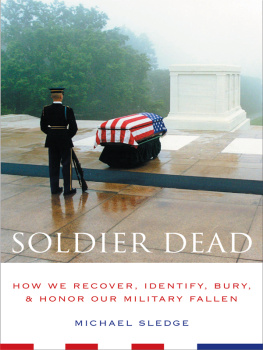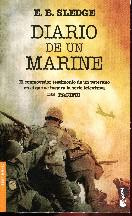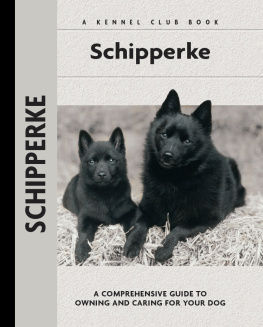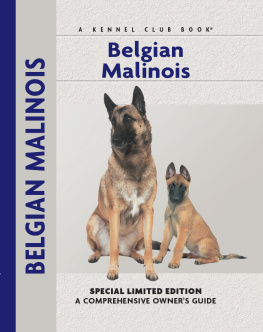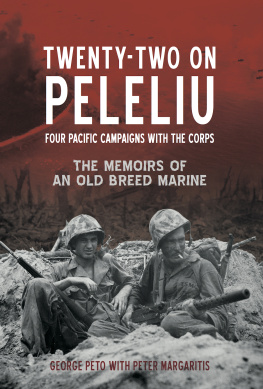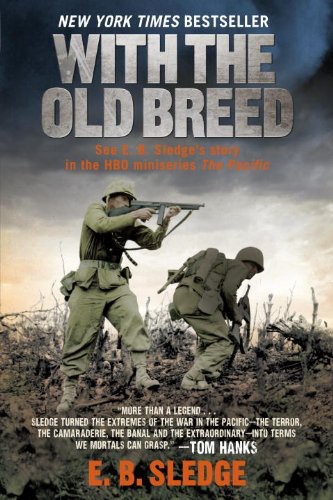F OREWORD
It was my privilege to assume command of the 3d Battalion, 5th Marines, 1st Marine Division (Reinforced) on 10 April 1944 during the final phase of the New Britain campaign. New Britain was its second combat operation.
Although we didn't know it at the time, two more campaigns lay before the battalion, Peleliu and Okinawa. Each of them would be of greater intensity and extract a greater cost than did the first two. And when the division departed New Britain for a rest camp on Pavuvu in the Russell Islands, we began comprehensive training for what was to become Operation Stalemate on Peleliu Island in the Palau Islands. That operation was to receive little publicity or recognition, but it was certainly to be one of the bloodiest and hardest fought in the Pacific war.
Among the replacements who joined us during this period was a young Marine known as Sledgehammer, more properly listed as Pfc. E. B. Sledge. He was assigned to Company K, under the command of Capt. Andrew Haldane, one of the finest company commanders in the entire Corps.
Sledgehammer has a Ph.D. now and is a professor of biology at the University of Montevallo, Montevallo, Alabama. But he has never forgotten his experiences with Company K during the fights for Peleliu and Okinawa.
Although I commanded the 3d Battalion during its training period for Peleliu, it was my fatethrough the vicissitudes of seniority, or the lack thereofto be transferred to the regimental staff before we sailed for Peleliu. That was a source of deep regret on my part.
It's customary for historical accounts to be written about military campaigns. It's not unusual for officers to write their personal narratives of such operations. But it's all too rare for an ordinary Marine infantryman to set down in print his own impressions of war. This is the man who actually closes with the enemy, who endures a plethora of privations along with pain and all too often death, who is the lowest common denominator when battle is joined.
Sledgehammer Sledge was such a Marine. In this book we see the war as he himself saw it. Anyone who has served in the ranks will find many situations analogous to his own experiences recounted accurately in the recital of fears, frustrations, and small triumphs. It's fascinating and instructive reading.
Brig. Gen. Walter S. McIlhenny,
U.S. Marine Corps Reserve (Ret.),
Avery Island, Louisiana
P REFACE
This book is an account of my World War II experiences in training and in combat with Company K, 3d Battalion, 5th Marine Regiment, 1st Marine Division during the Peleliu and Okinawa campaigns. It is not a history, and it is not my story alone. I have attempted, rather, to be the spokesman for my comrades, who were swept with me into the abyss of war. I hope they will approve my efforts.
I began writing this account immediately after Peleliu while we were in rest camp on Pavuvu Island. I outlined the entire story with detailed notes as soon as I returned to civilian life, and I have written down certain episodes during the years since then. Mentally, I have gone over and over the details of these events, but I haven't been able to draw them all together and write them down until now.
I have done extensive research with published and unpublished histories and documents pertaining to my division's role in the Peleliu and Okinawa campaigns. I have been amazed at the vast difference in the perception of events recounted in these narratives as contrasted to my experience on the front line.
My Pacific war experiences have haunted me, and it has been a burden to retain this story. But time heals, and the nightmares no longer wake me in a cold sweat with pounding heart and racing pulse. Now I can write this story, painful though it is to do so. In writing it I'm fulfilling an obligation I have long felt to my comrades in the 1st Marine Division, all of whom suffered so much for our country. None came out unscathed. Many gave their lives, many their health, and some their sanity. All who survived will long remember the horror they would rather forget. But they suffered and they did their duty so a sheltered homeland can enjoy the peace that was purchased at such a high cost. We owe those Marines a profound debt of gratitude.
E.B.S.
A CKNOWLEDGMENTS
Although this is a personal account, which was originally written for my family, there have been numerous people who have helped shape it into book form for the general reader.
First I want to thank Jeanne, my wonderful wife. She typed the Peleliu portion of the manuscript from stacks of my handwritten pages, and was the first to suggest that this narrative might be of interest to others than our family. She has encouraged and aided me with ideas, advice, editing, and typing. That the lengthy original manuscript was completed after years of spare-time writing and research during graduate school and child rearing is due as much to her assistance as to my efforts.
Deepest appreciation is extended to my editor, Lt. Col. Robert W. Smith, USMC (Ret.). During his last year as editor of the Marine Corps Gazette, he became interested in seeing this complete account in book form during our work on extracts, which appeared as a three-part article, Peleliu: A Neglected Battle. His interest has been my good fortune. In addition to his vast editing skill, Bob has been an inexhaustible source of good ideas and advice. On more than one occasion he has bolstered my sagging morale when I've become weary with what is not a happy subject. His objectivity has guided me through the forest when I couldn't see the trees, and when it was painful to both of us to omit parts of the original. I am grateful for his sensitivity and impeccable professionalism.


